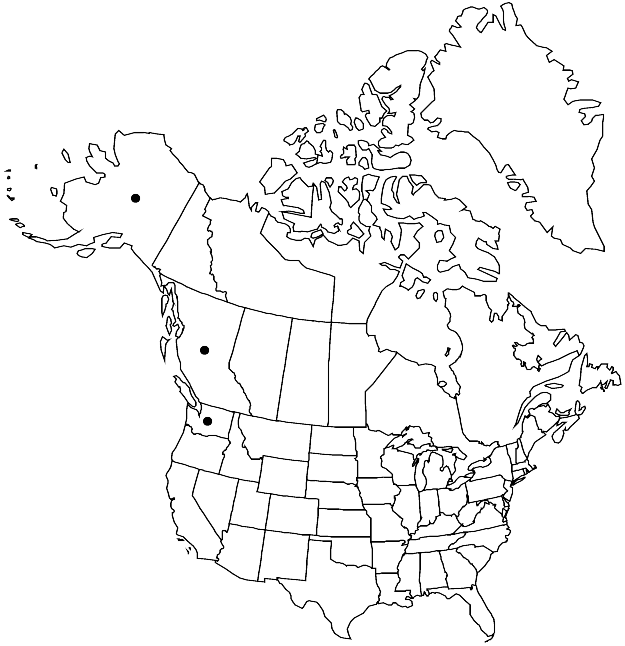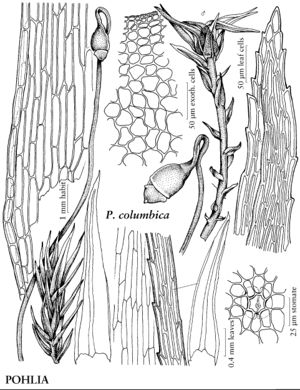Pohlia columbica
in A. J. Grout, Moss Fl. N. Amer. 2: 202. 1935.
Plants small to medium-sized, green to reddish, dull. Stems 0.4–1.5 cm, green to pale orange or pink. Leaves erect-spreading to spreading, narrowly lanceolate to lanceolate, 1.2–2.5 mm; base not or scarcely decurrent; margins serrate in distal 1/3; costa subpercurrent; distal medial laminal cells linear-hexagonal, 85–150 µm, walls thin. Specialized asexual reproduction absent. Sexual condition dioicous; perigonial leaves to 3 mm; perichaetial leaves ± differentiated, lanceolate to linear-lanceolate. Seta orange-brown. Capsule inclined 145–180°, brown to stramineous, short-pyriform to urceolate, neck less than 1/3 urn length; exothecial cells isodiametric, walls sinuate; stomata immersed; annulus absent; operculum short- to long-conic; exostome teeth yellow to yellow-brown, triangular-acute; endostome hyaline, basal membrane 1/2 exostome length or slightly longer, segments tapered apically, distinctly keeled, broadly perforate, cilia long and nodulose, or short. Spores 13–18 µm, finely roughened.
Phenology: Capsules mature spring (May–Jul).
Habitat: Disturbed soil, along streams
Elevation: low elevations
Distribution

B.C., Alaska, Wash.
Discussion
Pohlia columbica is a very rare and poorly known species characterized by dull reddish plants, variably long-acuminate perigonial leaves, pale yellow-brown exostome teeth, and immersed stomata. The exothecial cell walls of capsules of this species are somewhat collenchymatous; the perichaetial leaves are 3 mm long.
Selected References
None.
